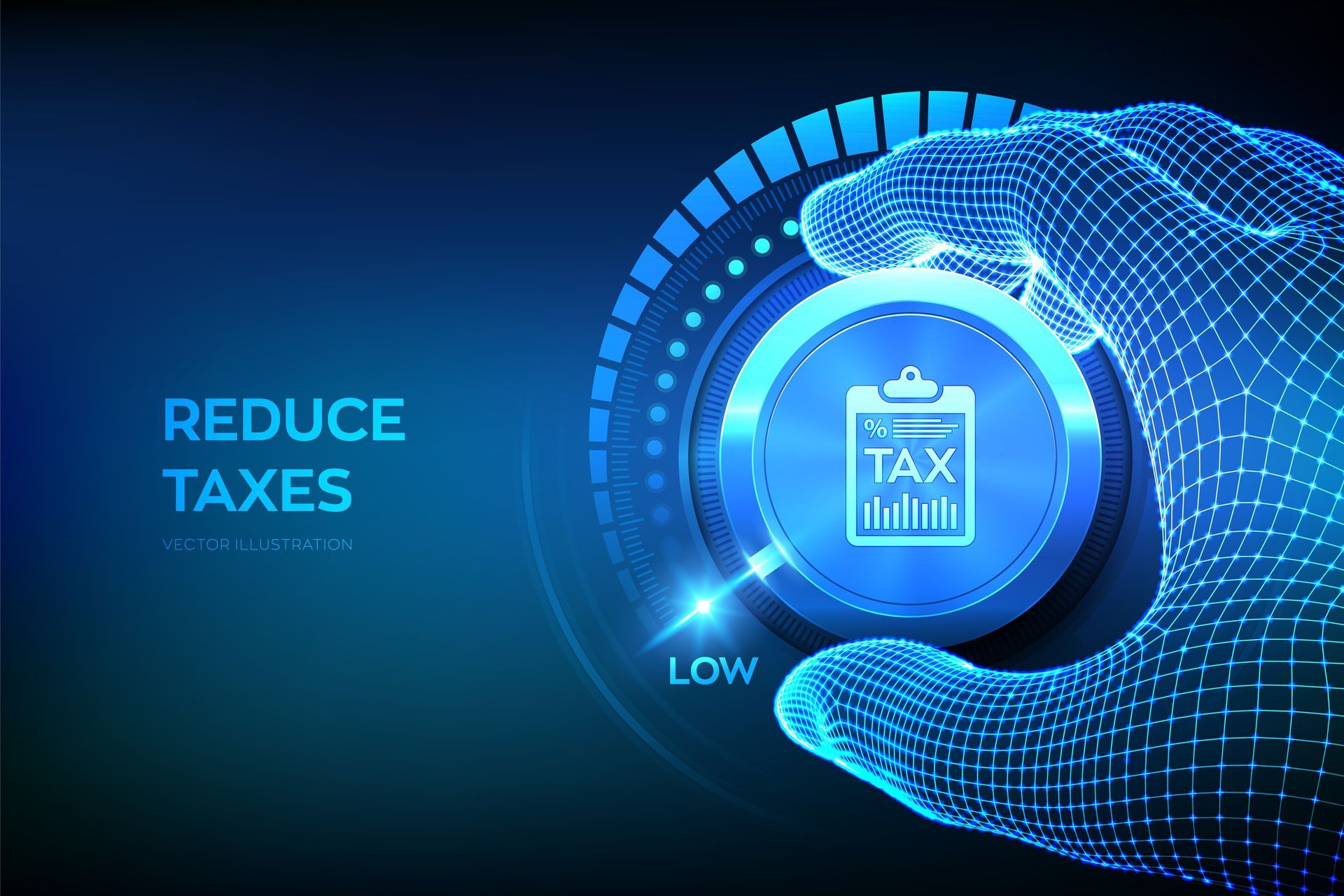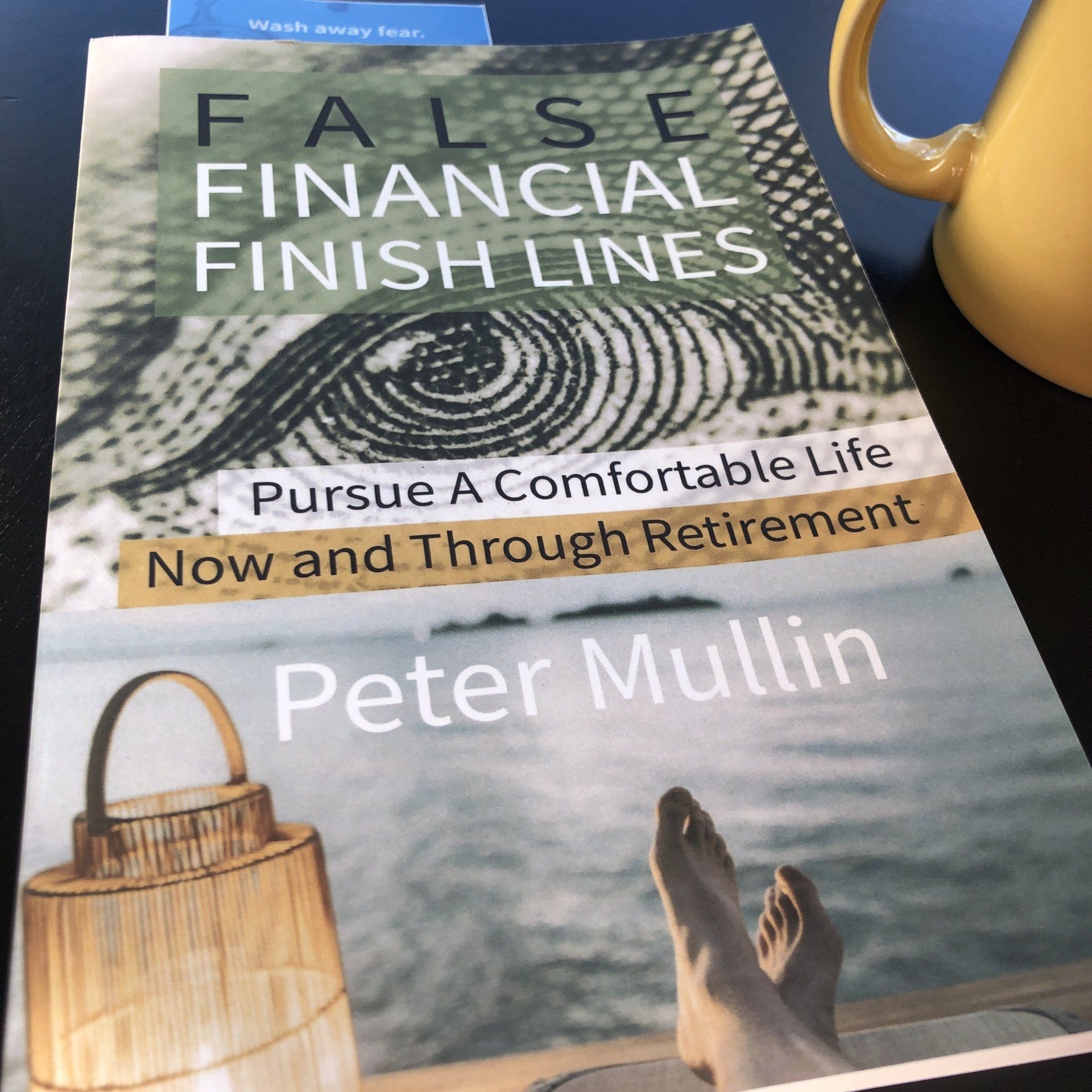Financially Savvy at Six Figures
Financially Savvy at Six Figures

Reaching six figures is no easy feat. If you’re one of the hard-working few who have made it to this milestone, give yourself a pat on the back and celebrate. It can be tempting to feel like now that you've made it to the top of this mountain your financial worries are over. But before you go reaching for a bottle of champagne or calling a Ferrari dealer, consider this: the majority of Americans living paycheck to paycheck are from higher income households. In fact, out of 9 million Americans surveyed, 8 million of those are in higher income brackets.1
Now it's more important than ever to take an active role in managing your money. Don't equate earning six-figures with the ability to spend six-figures. Fortunately, there are several strategies that may help:
Steps to Take
There is no one-size-fits-all strategy for maximizing your new six-figure income. Every person is different, and some suggestions may mean more to you than others. But there are tried-and-true methods that can help point you in the right direction when it comes to your financial health.
Review Your Budget
Now that you are making six figures, you may be tempted to never look at your budget again. Resist this temptation and go back over your budget to make sure your spending is based on your overall approach. Feel free to adjust your line items to match any new priorities without going overboard. Careful preparation may help you know how much you can consider spending on that splurge item that you found online. Your renewed budget should be designed to follow your other new goals, knowing that your day-to-day matters are on firm footing.2
Target Unproductive Debt
Not all debt is bad, as much of it helps you both financially and in terms of your quality of life. But certain types of debt, like credit cards and personal loans, may be something you want to manage better. Set a goal for your unproductive debt, which may put you in a better overall financial position. Each penny you save can go toward other goals, such as vacations, travel or even retirement.
Build Your Emergency Fund
Life is full of the unexpected. Prepare by setting aside enough liquid money to cover three to six months of expenses. This reserve may help you manage through a job loss or an injury or illness that requires time to heal.
Don't Forget About Taxes
Now that you’ve entered a new income bracket, your tax obligations may have changed. Take time to review your tax situation in an effort to avoid year-end surprises. This article is for informational purposes only and is not a replacement for real-life advice, so be sure to consult a tax, accounting, or human resource professional before modifying your tax-withholding strategy.
Don’t Forget Your Retirement Plans
If you haven’t started planning for retirement, your new income level may allow you to start setting aside money using a company-sponsored retirement plan. Initially, a financial professional may be able to provide guidance concerning the role a retirement plan can play in your overall financial strategy.
Move Forward Confidently
Restructuring your budget, managing debt, creating an emergency fund, and beginning to consider retirement may help ensure a more comfortable financial future. Even at a six-figure income, proactive preparations can help position you such that your money will eventually work for you.
Tracking # 1-05378671
1. Pymnts.com, January 2023
2. Forbes.com, March 29, 2022
The content is developed from sources believed to be providing accurate information. The information in this material is not intended as tax or legal advice. It may not be used for the purpose of avoiding any federal tax penalties. Please consult legal or tax professionals for specific information regarding your individual situation. This material was developed and produced by FMG Suite to provide information on a topic that may be of interest. FMG, LLC, is not affiliated with the named broker-dealer, state- or SEC-registered investment advisory firm. The opinions expressed and material provided are for general information, and should not be considered a solicitation for the purchase or sale of any security. Copyright 2023 FMG Suite.
- Mullin's take on the "4% Retirement Rule"
- Navigate "Bad Portfolio Weather"
- Tips to Optimize Social Security





Articles and Assets
What are your Priorities?
Well it’s the end of the year. I just searched on Google for “market outlook 2018.” I came up with a little over 58-million “results.”
So should you be investing in stocks in 2018? The quick answer: It’s likely a prudent part of your portfolio. But it depends on your circumstances, right?
It’s apparently popular to throw your hat in the ring.
A mantra that you hear among disciplined professionals is to “stay the course.”
Then you hear “sell high, buy low.”
Who’s right?
The relief of a disciplined strategy is that it can be tailored to you. And tailor we think you should.
Yes, it’s possible that an investor may not utilize stocks in their portfolio at all. Or you may decide to go “all in” with a diversified stock portfolio.
(Side effects from tailoring a strategy may include increased confidence & persistence, apathy toward daily market reports, and increased focus on what really matters.)
Let’s begin with the “Why” of investing for you. Then you can request 15-minutes on the phone discuss your “how.”
So “Why Should You Invest”
Life changes and our “why” of investing ought to transform with life. Some invest for sport – they like the risk/reward of investing – they’re in it for the thrill. I don’t hang with this crowd.
Most of us ought to invest for things we want. Our money & our goals are serious. By investing in a diversified portfolio we can pursue things we want.
1. Living A Comfortable Retirement: Retirement is a noun. It’s up to you to really design and live a retirement that reflects you.
2. Purchasing a Home: Home is a place to live. It can take a down payment.
3. Passing an Inheritance on to Family:
4. Student Loan Shield: This idea is important for many Millennial graduates. Student loans can dominate your budget. But instead of accelerating those payments, what if you paid your required payments, and then invested the additional money that you were going to pay against your loan balance?
5. Emergency Reserves: You probably have read that it’s prudent to keep a relative healthy amount of cash in your checking/savings. Once you’ve achieved that, then you can consider investing additional funds. Go a step further and consider a non-retirement account for you and your house. You can spend this on cars, vacations or use it just as described in #4.
The Dow Jones has seen positive results, so far, in 2017. It’s unusual and sort of uncomfortable as the independent financial advisor. Why is it uncomfortable?
What would sting & linger longer? Finding $20 in the parking lot? Or finding a $20 parking fine on your windshield?
We’ve been finding a lot of metaphorical “$20’s” (i.e. “positive results”) in our portfolios this year. So the second we find a parking fine (or a few in a row) we’ll be sure to ask if stocks are still the right place to park our money.
Complacency can work against us, Dear Clients. Just keep recalling your long-haul strategy and your “why” of investing.
***
Peter Mullin is an independent financial advisor registered through LPL Financial. He lives in Rogers, MN with his family. He was born and raised in St. Cloud, MN. Mullin Wealth Management is located in Waite Park, MN.
The opinions voiced in this material are for general information only and are not intended to provide specific advice or recommendations for any individual.
Investing involves risk including loss of principal.
There is no guarantee that a diversified portfolio will enhance overall returns or outperform a non-diversified portfolio. Diversification does not protect against market risk.
All performance referenced is historical and is no guarantee of future results.
All indices are unmanaged and may not be invested into directly. No strategy assures success or protects against loss.









